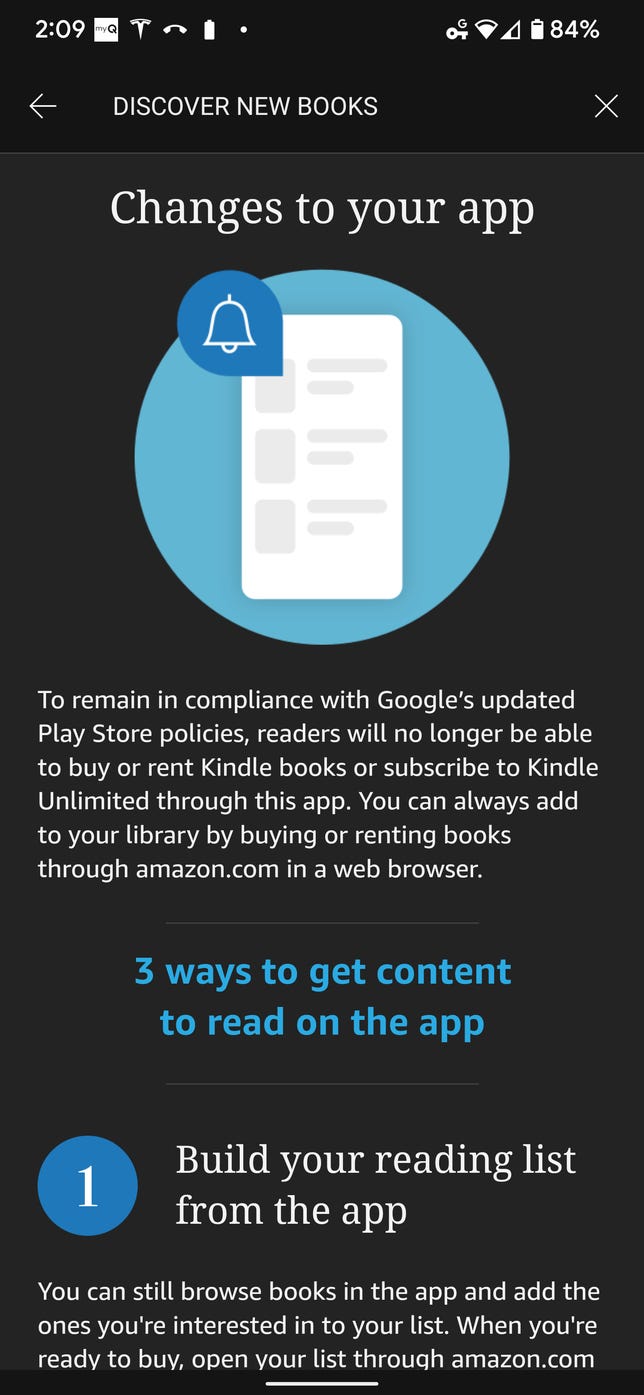Kindle users can no longer rent or buy books or pay for Kindle Unlimited subscriptions using the email reader’s Android app, Amazon said in an email Tuesday. Instead, people have to pay for content on a web browser and then access the books through their apps digital library.
Amazon said in the email that the change is necessary “to remain consistent with updated Google Play Store policies.”

The Kindle app for Android displays this message when users click on a link that says, “Why can’t I purchase the app?”
CNET
Google specified in 2020 that apps will use Google Play’s billing system to charge for “in-app features and services,” which include digital content in addition to subscription services, upgraded versions of a free app, and cloud services like data storage. The billing system is not used for the sale of physical items such as groceries and clothing in apps or for peer-to-peer payments or purchases made in gambling apps.
Google reduces transactions by 15% on its Play Store billing system. The fee was cut from 30% in January.
The deadline to comply with the policy is Wednesday, after which Google said it will remove incompatible apps from the Google Play Store. Amazon has already implemented the change in version 8.58 of the Kindle app for Android, where the app displays a message stating that purchases and rentals in the app are not available.
The company has also reportedly disabled in-app purchases on its Audible and Music apps, in addition to removing digital purchase features on its Shopping and Prime Video apps.
iPhone users are already familiar with this arrangement for the Kindle app, like Apple required e-reader manufacturers to remove links in their iOS apps that allowed people to make purchases in 2011 even though the links were redirected to a site.
